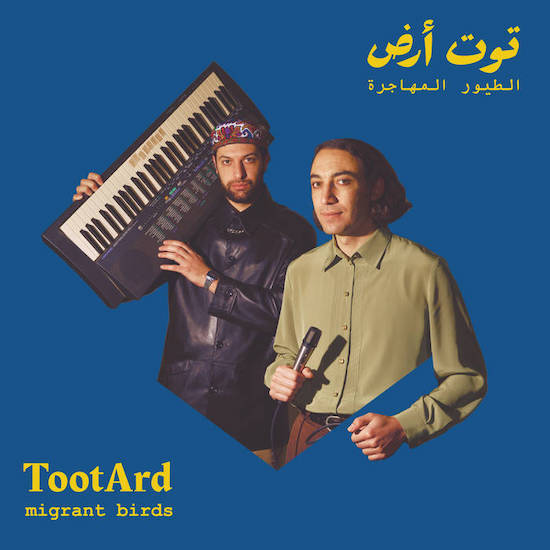Will you trust them? A question posed by the Nakhleh brothers on ‘Trouble Watan’ – a song on their second album as TootArd.
Some reassurance may be required for anyone familiar with their previous work – that had an influence of desert rock in fusion with reggae at times. Four years on they have returned, ditching the guitars and armed with PSR-62 Oriental synthesizers.
So a leap of faith is required – although that trust in the group may well be rewarded. The change in sound is as much of a surprise as it is welcome.
‘Will you trust me? Let’s make a cultural revolution, And damn patriarchy, A revolution of love and gender freedom’ – ‘Trouble Watan’
It’s a recurring theme to welcome the group to your bosom, or as the heady single ‘Open Sesame’ urges – “open your heart”.
And there is plenty to warm to. Programmed beats with popping drum fills propel swooping middle-eastern melodies. Musically the album takes its cues from 1980’s disco with distinctly Arabic influence – and insistently labyrinthine shaabi melodic lines – with modern production values, that prevents it from sounding dated, while maintaining its kitsch factor.
Hailing from the Israeli-occupied Golan Heights on the Syrian border, Hasan and Rami have never owned a passport. Since the 1960’s residents of this region have depended on a document to cross between state borders (that provided the title of their debut album, Laissez Passer).
The message in songs like ‘Remote Love’ sounds even more widely resonant during what has turned out to be a long few months for many people living in lockdown.
The PSR-62 Oriental synth model used on the album was one the brothers grew up learning in their family home. Developed to include the quarter tones from Arabic music scales and the rediscovery of the instrument led to the experiments that inspired the conception of the new direction of their music.
Egyptian musicians like Omar Khorshid and Umm Kulthum are cited as influences, in addition to Magdi al-Husseini and Ihsan Al-Munzer who were among the first musicians to use the then new synths in Arabic pop music.
The TootArd members’ memory of compilations of 80s hits heard in childhood mixed with the hypnagogic effect of reviewing this music with contemporary ears creates a dream-like effect on Migrant Birds.
The dancefloors remain empty on the album’s release. Surely it wasn’t all a fantasy? For now it sounds almost mythically lost in time.


